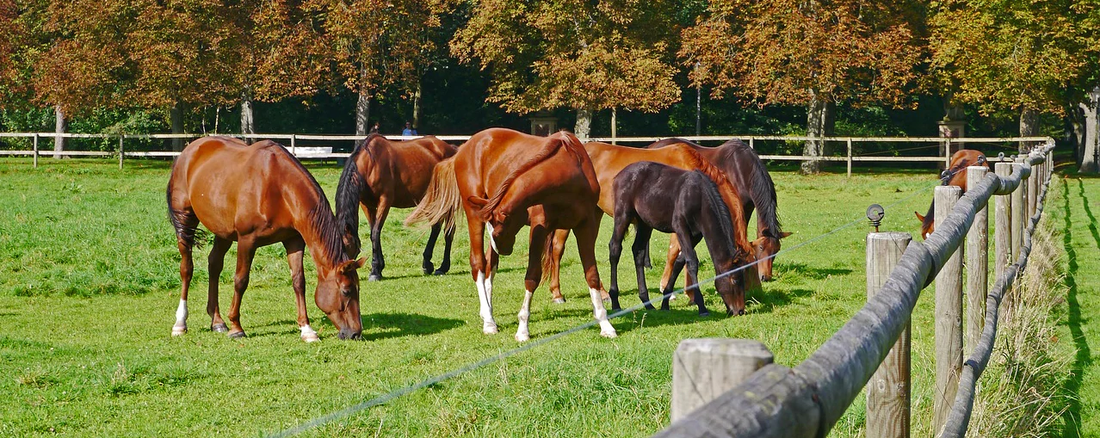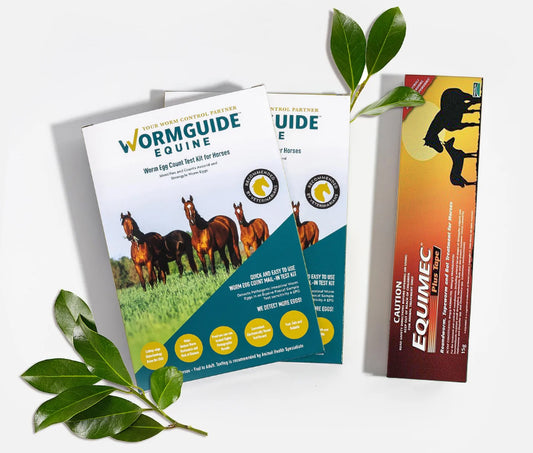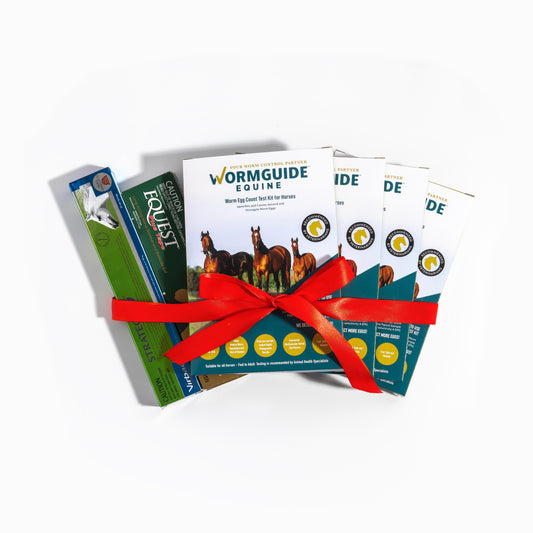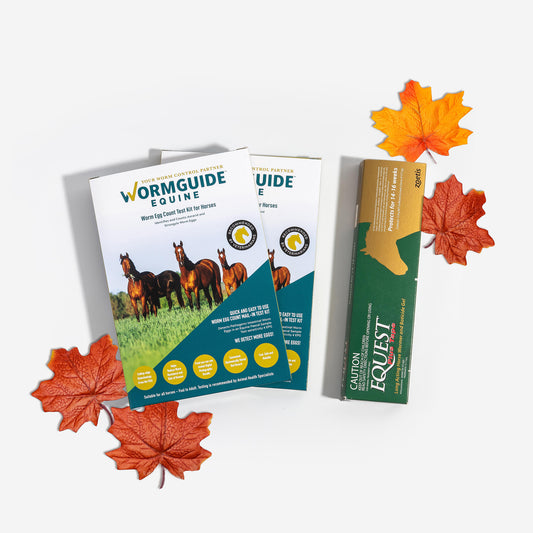With autumn upon us, it`s time to start thinking about horse worm control management. In this article we look at why late autumn is a crucial time to faecal egg count test and horse deworming.
What happens in autumn?
Most horse owners are excited to welcome autumn. The days of adjusting riding plans in the scorching heat of summer for fear of over-heating horses are over. But with the drop in temperature horse worms also welcome the seasonal change. They prefer warm climates of between 22 and 30 degrees Celsius. Whilst we have a range of climatic zones with different seasonal variations throughout Australia most regions observe an increase in horse worms from March through to May: here’s why
- With cool relief from the extreme hot summer days the weather conditions are optimal for development of eggs and larval survival on pasture.
- Tapeworms use the oribatid mite found in grass to complete their lifecycle. Their eggs are eaten by these mites with the immature worm developing inside them. Horses accidentally eat the mite with the grass. These mites prefer the autumn temperature and moist environment.
If you`re wondering about ascarid worms (roundworm) that mostly infect foals climatic influences may play some role, but it is less than other horse worm groups. Seasonality depends on when foals were born.

Why deworm horses in autumn?
- Interrupts the life cycles of key horse worms.
- Removes the accumulation of worms in horses before the winter months.
- Minimises the numbers of pathogenic horse worms
- Minimises types of colic that usually occur in the winter months
- Controls tapeworm
- Prevents the dangerous bloodworm (large strongyle)
- Cleans-out bots (insect) to decrease transmission next summer.
Why do all horses need to be faecal egg count tested in late autumn?
It’s considered best practice to incorporate Faecal Egg Counts (FECs) into your horse worm control management to slow down dewormer resistance. The dewormers we use to kill the worms in our horses are no longer very effective! And to complicate matters there won`t be any new dewormer medicines developed in the foreseeable future, if ever. It has become crucial to conduct faecal egg counts using a high performance testing technique for precise results (rather than the old simple run of the mill FECs) to manage our way around the dewormer resistance problem that threatens the health and welfare of horses.
Get Ready for late Autumn – the peak time for horse foundation deworming! WormGuide offers a convenient Autumn Advantage Set to give your horses the foundation control measure they all need.
Test: Use your Super Surveillance faecal egg count Kit to send us a poo sample to find out the type of horse worm in your horse and to gauge worm egg numbers.
Treat: Use the most appropriate autumn horse dewormer.
Check: Use your Truth Teller faecal egg count Kit to send us a poo sample 10-14 days later to find out if the deworming treatment worked or failed.
Test good, treat good, do good!
WormGuiders receive the What do my Results Mean? Guide based on the best possible up-to-date scientific evidence available with their FEC results.
And if your vet is not available, our expert WormGuider equine vet parasitologist Dr Charlie is available to help you develop the best worming schedule for your horse.
If you have a herd of horses, test for dewormer resistance. Resistance testing is now the most important reason for doing faecal egg counts.
Faecal worm egg count monitoring of dewormer efficacy for herd health.

Dewormer Resistance
Do you know what deworming product works on your property?
How do you know? Have you ever tested the efficacy of the dewormer you use?
WormGuide offers the Gold Standard Faecal Egg Count Reduction Test (FECRT). It`s the only way to test for dewormer resistance.
The minimum number of horses from a herd is 6 horses that are strongyle egg positive before the autumn foundation deworming treatment. This provides a meaningful sample of the worms on your property.
We are not testing the horses; we are testing the worm population on your property. All horses share the same worms, so each horse is a biological sample of all the worms on your property.
Reduce risk, Reduce uncertainty
Want to test for resistance? Grab your Gold Standard Resistance Detection Service here
WormGuiders receive the What do my Results Mean? Guide based on the best possible up-to-date scientific evidence available with their FEC results.
And if your vet is not available, you can turn to our expert WormGuider equine vet and epidemiologist Dr Annand for skilled interpretation of the result, and if an indication of resistance or emerging resistance is present further consultation is available.
Resistance is real! Read about First Evidence of Small Strongyle Worm Resistance in Australia to top-shelf dewormer.











